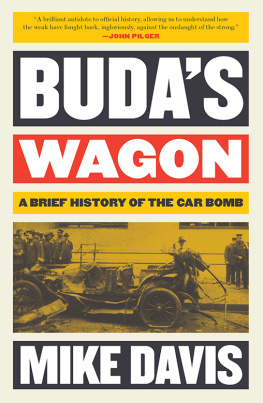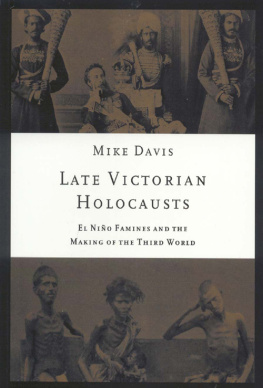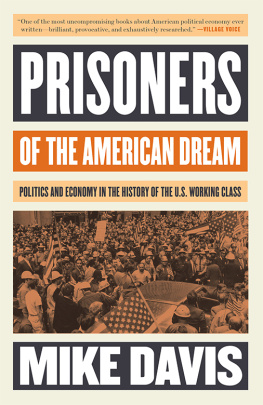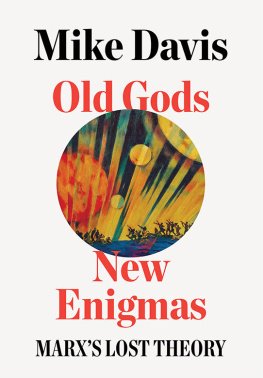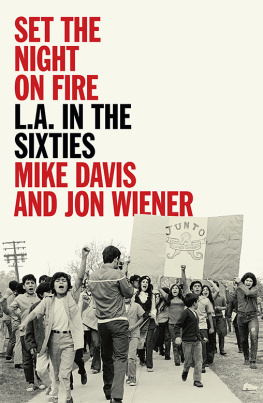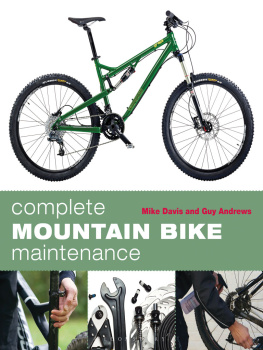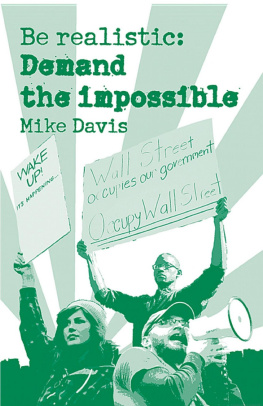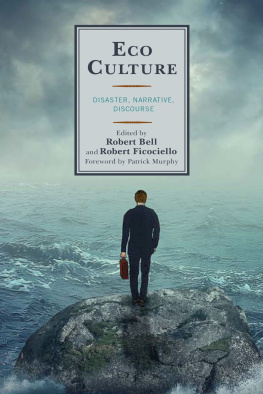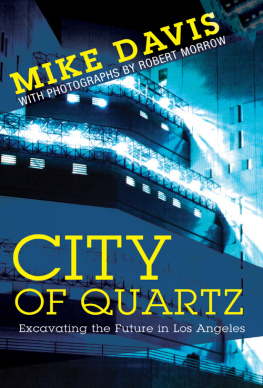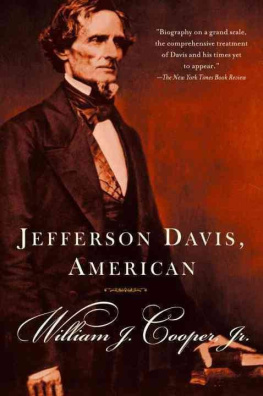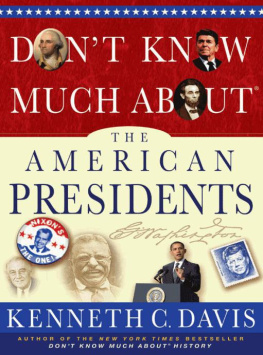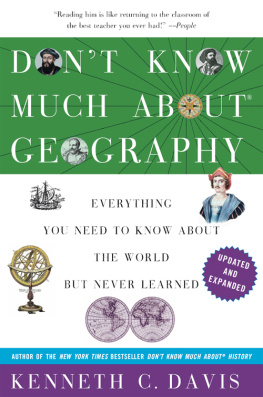Contents
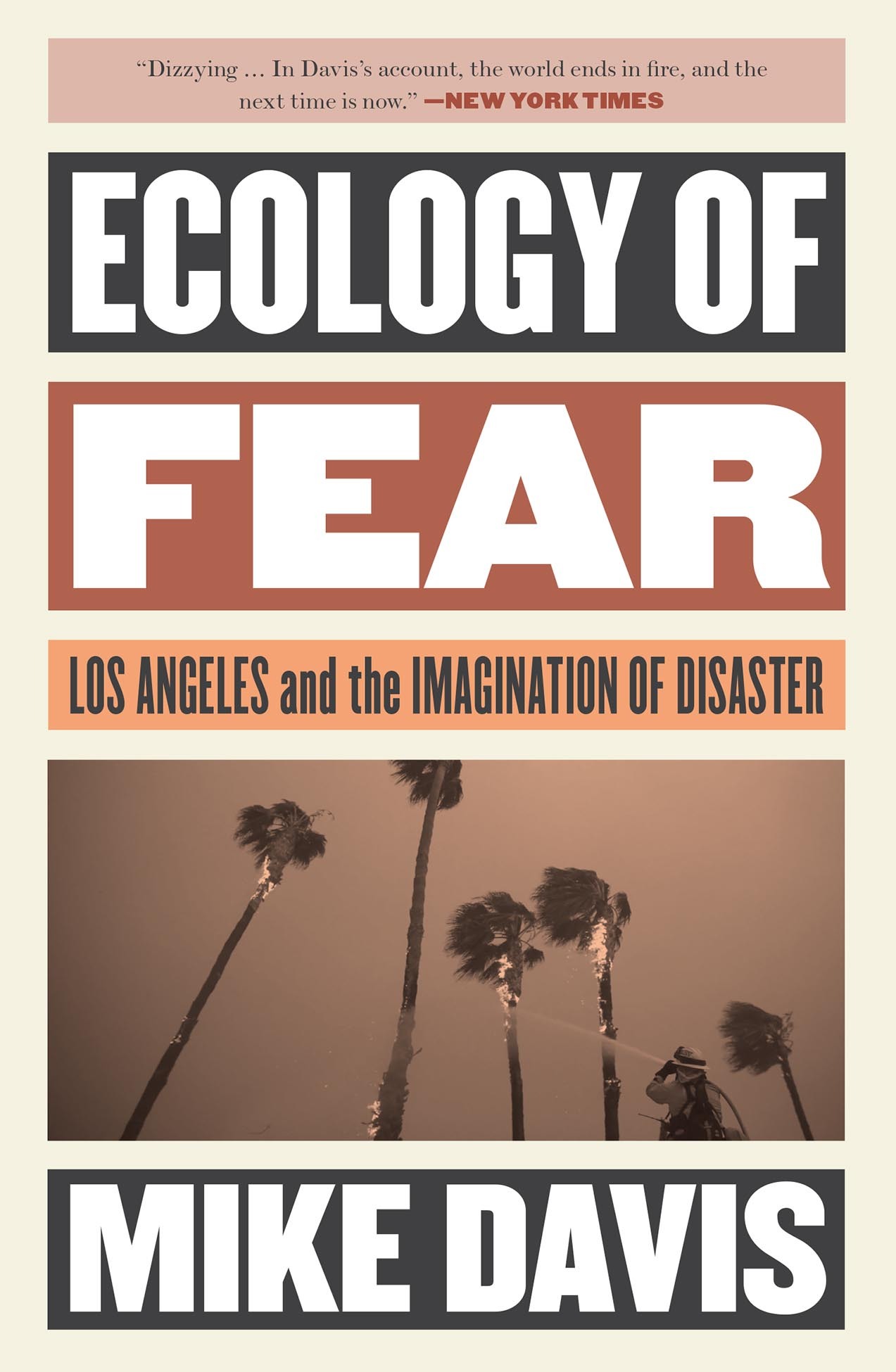
Acclaim for MIKE DAVISs
ECOLOGY OF FEAR
Davis seem[s] to know the citys every odd corner and guilty secret.
The New York Times Book Review
Among the critics of Los Angeles mores, Mike Davis is the undisputed champion,
Los Angeles Times Book Review
Davis makes [his] case with great panache, like a gleeful Cassandra: his diagnostic brilliance is matchless.
The Village Voice Literary Supplement
What is ultimately so chilling about this book, is its sober fact-filled approach. The evidence piles [up] so fast that midway through readers will be firmly convinced.
New York Post
On the subject of the environment. Ecology of Fear is an enormously convincing and terrifying work.
Business Week
He has won an unquestioned place on the short list of serious thinkers about a city whose prevailing culture has long been a blend of oligarchical boosterism and noir self-loathing.
The New York Times
Daviss cataclysmic history is clearly designed to disabuse anyone still willing to buy into the areas long- cultivated peaceful and sun-drenched mythology.
The New Yorker
ECOLOGY OF FEAR
LOS ANGELES
AND THE
IMAGINATION
OF DISASTER
MIKE
DAVIS

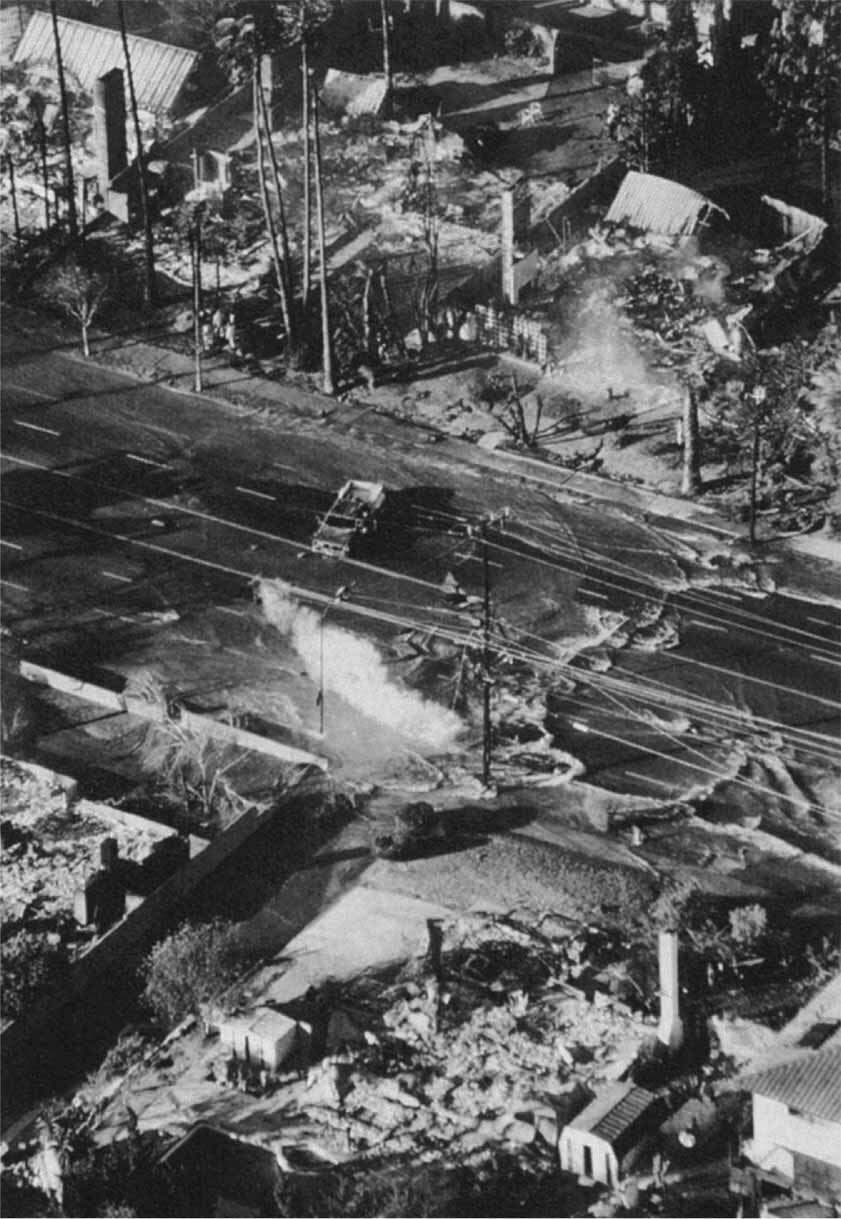
This edition published by Verso 2022
First published by Metropolitan Books,
an imprint of Henry Holt and Company, Inc. 1998
Mike Davis, 2020
All rights reserved
The moral rights of the author have been asserted
1 3 5 7 9 10 8 6 4 2
Verso
UK: 6 Meard Street, London W1F 0EG
US: 20 Jay Street, Suite 1010, Brooklyn, NY 11201
versobooks.com
Verso is the imprint of New Left Books
ISBN-13: 978-1-78663-624-9
ISBN-13: 978-1-78663-625-6 (US EBK)
ISBN-13: 978-1-78663-626-3 (UK EBK)
British Library Cataloguing in Publication Data
A catalogue record for this book is available from the British Library
Library of Congress Cataloging-in-Publication Data
A catalog record for this book is available from the Library of Congress Printed and bound by CPI Group (UK) Ltd, Croydon, CR0 4YY
for my kids, Jack and Roisin
No place on Earth offers greater security to life and greater freedom from natural disasters than Southern California.
Los Angeles Times , 1934
CONTENTS
ECOLOGY OF FEAR
THE
DIALECTIC OF
ORDINARY
DISASTER
The two-week-long Kona storm of January 1995 differed little from the classic pattern, except perhaps in the unusual intensity of rainfall in the South Bay areaforcing the evacuation of low-lying neighborhoods in Long Beach, Carson, Torrance, and Hawaiian Gardensand in Santa Barbara County where 10 inches of rain fell in 24 hours. Otherwise, the scenes were those of ordinary, familiar disaster: Power was cut off to tens of thousands of homes. Sinkholes mysteriously appeared in front yards. Waterspouts danced across Santa Monica Bay. Several children and pet animals were sucked into the deadly vortices of the flood channels. Reckless motorists were drowned at flooded intersections. Lifeguards had to rescue shoppers in downtown Laguna Beach. Million-dollar homes tobogganed off their hill-slope perches or were buried under giant land-slides.
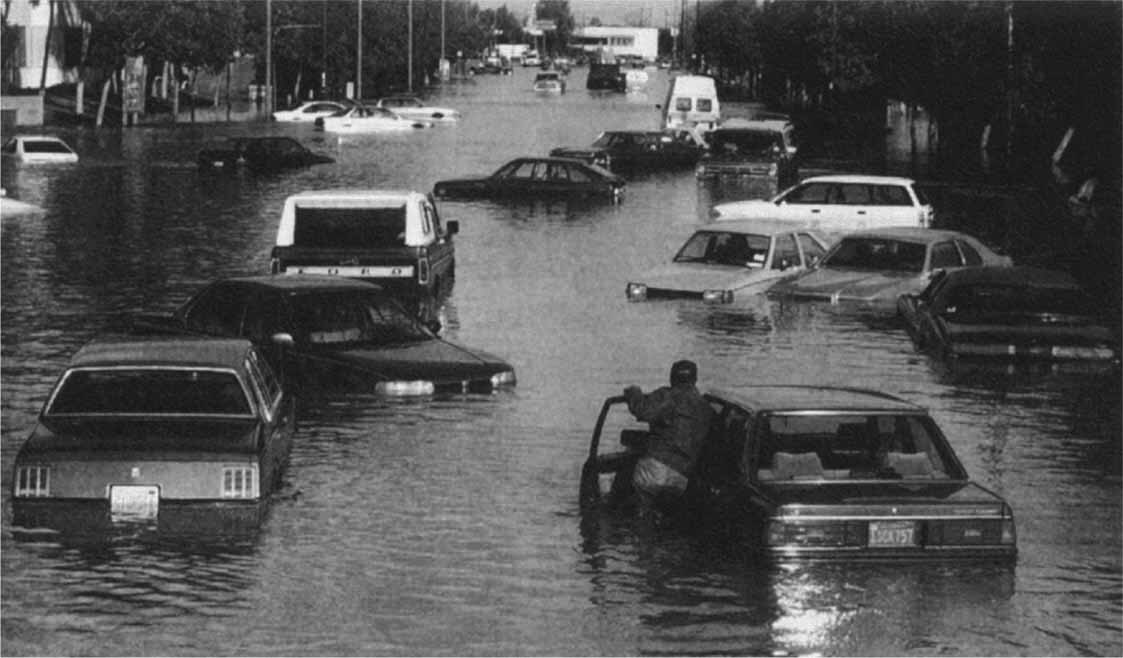
January 1995 storm (Long Beach)
1. APOCALYPSE THEME PARK
__________
[California], often to its own surprise, has developed a style of urbanization that not only amplifies natural hazards but reactivates dormant hazards and creates hazards where none existed.
Wesley Marx , Acts of God, Acts of Man (1977)
What was exceptional was not the storm itself (a 20-year event, according to meteorologists), but the way in which it was instantly assimilated to other recent disasters as a malevolent omen. As a Los Angeles Times columnist put it, Theres no question that [we are] caught in the middle of something strange maybe God, as the biblical sorts preach, is mad at us for making all those dirty movies.
The destructive February 1992, January 1993, and January 1995 floods ($500 million in damage) were mere brackets around the April 1992 insurrection ($1 billion), the October-November 1993 firestorms ($1 billion), and the January 1994 earthquake ($42 billion). When damage accounting was finally completed in 1997, the Northridge earthquake emerged as the costliest natural disaster in American history, more destructive, according to a Federal Emergency Management Agency (FEMA) spokesperson, than the combined impacts of the Midwest floods, Hurricane Andrew, the Loma Prieta earthquake and South Carolinas Hurricane Hugo.
From Ventura to Laguna, nearly two million Southern Californians were directly touched by disaster-related death, injury, or damage to their homes and businesses. The Northridge earthquake alone, according to the California Seismic Safety Commission, affected the lives of more people than any previous natural disaster in the United States.
For some unlucky souls, disaster has been a relentless, Job-like ordeal. Los Angeles firefighter Scott Miller, for example, was shot in the face during the 1992 riots while riding in his fire truck. He spent months in the hospital and was dismissed from the fire department due to disability. Two years later, his Granada Hills home was wrecked in the Northridge earthquake. Then, in early 1996, his new four-bedroom home in the Ventura County suburb of Newberry Park was destroyed by fire.
This virtually biblical conjugation of disaster, which coincided with the worst regional recession in 50 years, is unique in American history, and it has purchased thousands of one-way tickets to Seattle, Portland, and Santa Fe. After a century of population influx, 529,000 residents, mostly middle-class, fled the Los Angeles metropolitan region in the years 1993 and 1994 alone. Partly as a result of this exodus, the median household income in Los Angeles County fell by an astonishing 20 percent (from $36,000 to $29,000) between 1989 and 1995. Middle-class apprehensions about the angry, abandoned underclasses are now only exceeded by anxieties about blind thrust faults and hundred-year floods. Meanwhile, Caltech seismologists warn that the Pacific Rim is only beginning its long overdue rock and roll: the Kobe catastrophe may be a 3-D preview of Los Angeles 2000. And waiting in the wings are the plague squirrels and killer bees.
BIBLICAL DISASTERS?
| Date | Disaster | Dead | Damage (millions) |
| 1992 February | Storm/flood | 8 | $ 150 |
| 1992 April | Riot | 54 | $ 1,000 |
| 1992 June | Earthquake | 1 | $ 50 |
| 1993 January | Storm/flood | 9 | $ 150 |
| 1993 October | Firestorm | 3 | $ 1,000 |
| 1994 January | Earthquake | 72 | $42,000 |
| 1995 January | Storm/flood | 4 | $ 200 |


